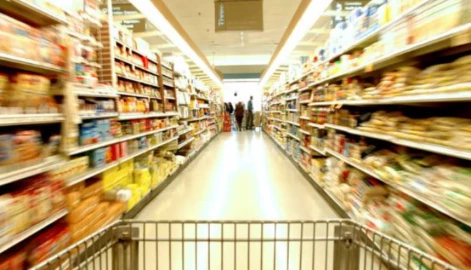- The 2025 Kenya Market Assessment Report shows that only 10% of packaged foods assessed passed the nutrients threshold as set by the Kenya nutrient profile model.
- The government is now seeking to introduce policies that will enable consumers to make informed decisions by prominently labelling foods.

The Ministry of Health is sounding an alarm over consumable products in the market, saying that most of them do not meet the required threshold for proper nutritional content.
The 2025 Kenya Market Assessment Report shows that only 10% of packaged foods assessed passed the nutrients threshold as set by the Kenya nutrient profile model.
The government is now seeking to introduce policies that will enable consumers to make informed decisions by prominently labelling foods.
Kenya’s dietary preferences have been progressively shifting from consumption of wholesome, traditional meals to a preference for processed and packaged foods. But these easy conveniences come with a hidden cost to the health of the country’s population.
The report by the non-profit Access to Nutrition Initiative has lifted the lid on the dangers lurking behind the packaged foods sold in Kenyan markets.
The report shows that 90% of the packaged foods available on supermarket shelves contain high levels of fat, salt and sugar, driving up the cases of non-communicable diseases.
The government says it is set to rectify this by implementing the country’s nutrient profile that sets specific limits for nutrients like fat, sugar and sodium across 21 categories of processed foods.
“We want to define the maximum levels of nutrients for concern, such as sugar, salt, and unhealthy fats. Foods exceeding this threshold are classified as unhealthy,” said Public Health and Professional Standards Principal Secretary Mary Muthoni.
The survey assessed over 700 food and beverage products, including carbonated drinks, juices and energy drinks, as well as rice, pasta and noodles, snacks including biscuits and confectionery, dairy products and ice cream, cooking essentials like edible oils and sauces, and breakfast items such as cereals and instant coffee.
Over 50% of the products sampled failed to meet the healthy rating, while only 32.8% were classified as healthy. Yet most of them are marketed as healthier options. The Ministry of Health says this must stop.
“We have seen in this market that unhealthy foods are being marketed openly. We have seen food, beverages, snacks, and dairy meant for children with appetising cartoons — that when you go to the supermarket with your kids, it is the first thing they will pick, not knowing if they are healthy or not,” PS Muthoni added.
To remedy this, the ministry is now looking at instituting reforms that will hand the power of knowledge and choice to the consumers.
“The front-of-package labelling, which we are developing, will be to implement the clear label of whether the product is healthy or not. We will want to know, by use of a colour, whether the product is healthy or unhealthy,” she noted.
The report also revealed that food products sold by the world’s biggest food and drink companies in poorer countries were less healthy than those sold in richer nations.
©Citizen Digital, Kenya
 5 days ago
110
5 days ago
110


